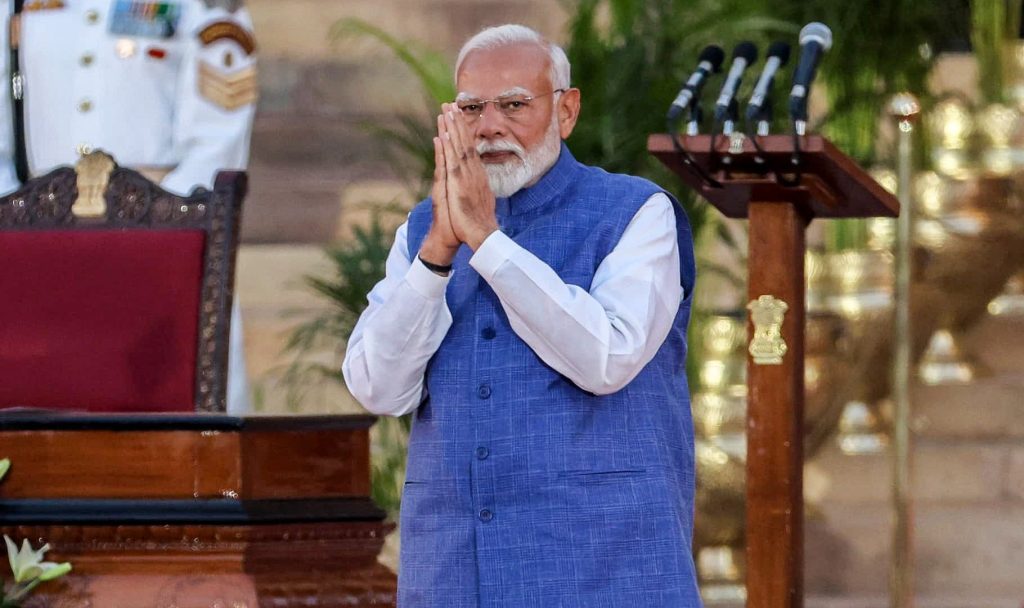India’s government has sought to balance close ties with both Russia and Western allies.
Indian Prime Minister Narendra Modi will visit Ukraine this week and meet with President Volodymyr Zelenskyy, several weeks after he met Russia’s President Vladimir Putin in Moscow.
Modi’s visit, the first by an Indian leader in more than 30 years, will take place on Friday, the Indian foreign ministry said on Monday.
Modi’s visit will provide an opportunity for the two leaders to discuss cooperation in defence, economic and business ties, science and technology and other sectors, Tanmaya Lal, a senior official at the Ministry of External Affairs, said at a briefing in New Delhi.
Ukraine’s Presidential Office also announced Modi’s trip, saying it’s his first visit during which two leaders will sign multiple cooperation documents and discuss “matters of bilateral and multilateral cooperation”.
Modi’s trip to Ukraine comes a month after Zelenskyy criticised his two-day visit to Moscow in July, when he met with Putin on the day Russian missiles struck across Ukraine, killing scores of people.
Zelenskyy had described the meeting as a “huge disappointment and a devastating blow to peace efforts to see the leader of the world’s largest democracy hug the world’s most bloody criminal in Moscow on such a day.” He also chided Modi for hugging Putin during their meeting.
Modi did not address the strikes directly during his trip, but alluded to the bloodshed while speaking about his meeting with Putin.
“Be it war, a struggle or a terrorist attack, every person who believes in humanity, when there is loss of life, he is pained,” Modi said then. “When innocent children are killed, when we see innocent children dying, then the heart pains. And that pain is very horrible.”
‘Dialogue and diplomacy’
India has avoided condemning Russia’s invasion and instead has urged Russia and Ukraine to resolve the conflict through diplomacy.
“The conflict is ongoing and we believe that the resolution to this conflict can only come through dialogue and diplomacy,” Lal said on Monday.
Modi’s government has thus far sought to balance close ties with both Russia and Western allies such as the United States, which has pushed India to take a more decisive stand against Russia’s war to little avail.
India is the world’s largest buyer of Russian arms, and has sought to capitalise on cheaper Russian oil as US and European countries seek to limit the Russian energy sector’s access to the global marketplace.
India’s stance – seeking close ties with both the West and Russia – is shared by many non-Western nations that have expressed disapproval of Russia’s war but reject what they see as a binary choice between two competing camps.
Others have found appeals to themes such as human rights and international law unconvincing or hypocritical, pointing to continued Western support for Israel’s war in Gaza amid allegations of widespread rights violations.
The US, which sees India as a key partner in its efforts to counter the influence of China in Asia, has largely accepted Modi’s desire for amicable relations with Russia.
“This is not a zero-sum game,” said Lal, adding that peace in Ukraine can only be achieved through “a negotiated settlement”.

